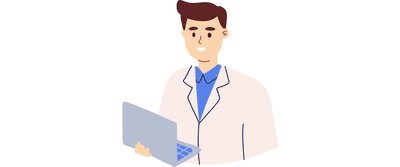![Healthy Matters]() Pharmacist Tips | Dosages | Side effects
Pharmacist Tips | Dosages | Side effects![Healthy Matters]() Nutritionist Tips | Facts | Precautions
Nutritionist Tips | Facts | Precautions![Healthy Matters]() Practitioner Tips | Dosages | Side effects
Practitioner Tips | Dosages | Side effects![Healthy Matters]()
![Healthy Matters]()

Cystitis: Inflammation of the Bladder
4 min read

Cystitis is the inflammation of the bladder. This is often confused with a UTI, which is an infection of the urinary tract, from the urethra to the bladder, to the kidneys. Therefore, when the UTI occurs only in the bladder, it can be the same as cystitis. However, UTI can describe infection anywhere in the urinary tract, whereas cystitis only pertains to the bladder.
Another type of cystitis is interstitial cystitis. It can also be referred to as painful bladder syndrome, and affects women much more commonly than men. It causes long-term pelvic pain, especially below the belly button, and problems peeing. Unlike regular cystitis, interstitial cystitis cannot be treated with antibiotics. Furthermore, they may have an inflamed or ulcerated bladder
Cystitis: Causes and risk factors
Cystitis is most commonly caused by bacterial infections. Harmless bacteria that live on the skin or in the bowel may get into the bladder through the urethra.
Women get cystitis more commonly than men do since the length of the urethra is shorter in women than in men.
Other risk factors include:
- Not drinking enough water and not emptying the bladder regularly: because bacteria that is inside the bladder is less frequently flushed out
- Use of a urinary catheter, which is a thin tube inserted into the urethra to drain the bladder
- Wiping the bottom from back to front after using the bathroom
- Menopause: Because the natural balance of vaginal bacteria is affected, which may lead to the overgrowth of more harmful bacteria. Since the vagina is very close to the urethra, it can make the spread of bacteria to the bladder more common
- Diabetes: Because diabetic patients have a higher level of sugar in the bladder, which is a favorable environment for bacteria to grow and reproduce, therefore if any harmful bacteria enter the bladder, this will most likely lead to cystitis. Relatively compromised immunity of diabetic patients further exacerbated the persistence and recurrence of infection
For interstitial cystitis, there may be an intrinsic deficiency at the protective layer of the bladder lining, issues with the discoordination of the pelvic floor muscles, or immune system malfunctions.
Cystitis: Signs and symptoms
The most common signs and symptoms of cystitis are changes in urination since the infection is happening in the bladder. These may include:
- Pain, stinging, or burning sensation when passing urine
- Needing to pass urine more frequently than usual
- Urge to urinate even after urination
- Cloudy or pungent urine
- Hematuria: blood in the urine
Other symptoms of cystitis include:
- Pain or ache in the lower abdomen
- Pelvic pain, especially for those with interstitial cystitis
- Feeling sick and unwell
- Fatigue
Cystitis in adults does not usually cause a fever. However, if a fever is present along with pain at the sides and lower back, then seek medical attention because these are also signs of a kidney infection.
In children, cystitis may cause fever, as well as vomiting and reduced appetite.
Cystitis: Diagnosis
Several tests may be performed to aid the diagnosis of cystitis, such as:
- Urine analysis: a urine sample may be taken to check for blood, bacteria or pus in your urine. If there are bacteria in your urine, a culture will be requested
- Imaging: ultrasound or CT scan of the kidneys and bladder may help your doctor look for underlying causes of bladder inflammation
- Cystoscopy: During this test, your doctor will insert a thin tube with a light and camera attached, through the opening of the bladder to visualize your urinary tract and look for signs of disease
- Functional assessment: a flow rate testing or voiding function evaluation may reveal the underlying problem in passing urine
Cystitis: Treatment
Cystitis, when mild, usually clears up on its own after a few days. In some moderate to severe cases, you will need antibiotics to fight off the infection.
You should seek medical attention for further treatment if:
- symptoms do not improve within 3 days: The healthcare professional may assess your case and provide antibiotics if necessary, or make further diagnosis.
- you get cystitis quite frequently (more than twice in 6 months or 3 times in a year)
- blood in urine is present
- you are pregnant
- you are a man
- you are a child
If antibiotics are prescribed, the usual course may be anywhere between 3-10 days.
For those with interstitial cystitis, pharmacological treatment may include:
- Painkillers: Paracetamol, ibuprofen, amitriptyline, gabapentin, pregabalin
- Antihistamines: Cimetidine, loratadine, cetirizine
- Medications to relax bladder muscles: Tolterodine, solifenacin, mirabegron
- Medications to relax the bladder neck or prostatic smooth muscles: silodosin, tamsulosin
- Medication to help repair the lining of the bladder: Elmiron
Cystitis: Prevention
If you have recurrent cystitis, then your healthcare professional may prescribe stand-by antibiotics for you, or in some cases, a course of continuous antibiotic treatment.
Continuous antibiotics are usually taken for a couple of months to prevent any further episodes of cystitis, and they are prescribed when cystitis occurs after having sex.
Other methods of prevention include:
- Wiping from front to back after using the bathroom, especially after a bowel movement
- Do not hold your urine in for too long
- Keep good genital hygiene
- Empty your bladder after having sex
- Increase your fluid intake: To increase the frequency of urination, as this also flushes out the bacteria
- D-mannose supplement and cranberry extracts may occasionally be helpful in reducing attacks of UTI
For interstitial cystitis, prevention can involve:
- Smoking cessation: Because the chemicals inhaled may irritate the bladder
- Stress reduction: Such as exercising. mindfulness, meditation, etc.
- Avoid eating or drinking certain foods that make your symptom worse
FAQs
Cystitis is the inflammation of the bladder, and a UTI is the infection of the urinary tract, which can include everything from the kidneys to the bladder, to the urethra. Therefore, while cystitis is a form of UTI, more than often UTI and cystitis are used interchangeably.
The most frequent culprit of acute bacterial cystitis is Escherichia coli.
Cystitis can be treated by antibiotics, and symptoms will improve within a day or two.
Mild form of cystitis usually resolves after 3 days, but if symptoms persist, then you should seek medical attention and the doctor may give you antibiotics, and to find out the underlying cause.
This article was independently written by Healthy Matters and is not sponsored. It is informative only and not intended to be a substitute for professional medical advice, diagnosis or treatment. It should not be relied upon for specific medical advice.

Your health resource, made in Hong Kong
Healthy Matters is Hong Kong’s leading health resource. Our mission is to help you make better health decisions and take control of your health.
Our team of experts is committed to producing reliable health content that is accurate, engaging and relevant, to cover your health & wellness journey from prevention to treatment.
Whether you are looking for trusted information on health conditions, wellbeing or looking for the right doctor or service in Hong Kong, we’re here to help!
Your health matters. Begin your health journey with Healthy Matters today!
































